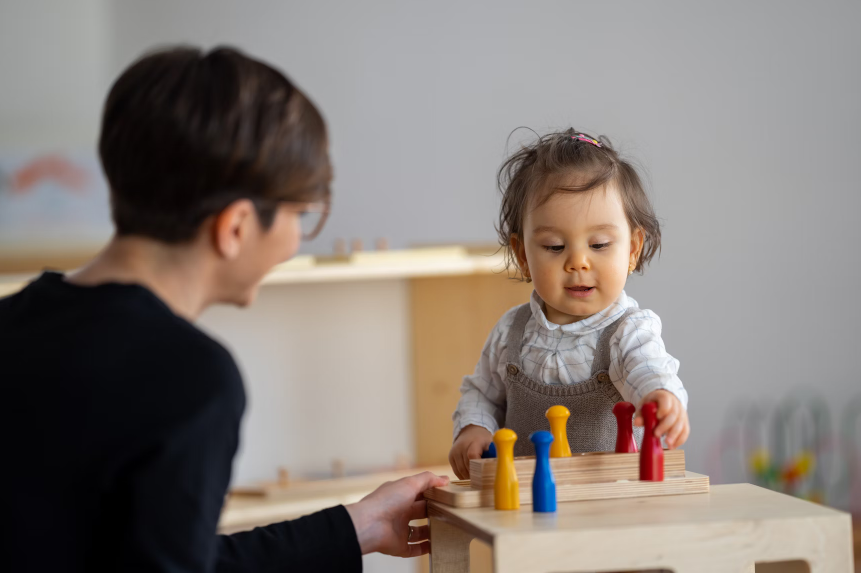
Choosing the right preschool is a crucial decision for any parent. The early years of a child’s life shape their personality, intellect, and future success. One educational approach that has stood the test of time and gained remarkable recognition is the Montessori method. This blog explores the benefits of a Montessori preschool education, offering insights into why it could be the perfect start for your child.
Understanding the Montessori Method
The Montessori method, developed by Dr. Maria Montessori, emphasizes child-led learning within a prepared environment. This approach encourages children to explore, discover, and learn at their own pace, fostering independence and confidence. It is rooted in respect for a child’s natural psychological development.
Fostering Independence in Young Minds
Montessori preschools are designed to promote independence from an early age. Children choose their activities and manage their time, developing essential life skills. This autonomy helps them become confident and self-reliant, preparing them for future academic and personal challenges.
Encouraging a Love for Learning
A core principle of Montessori education is nurturing a love for learning. Children engage in hands-on activities that spark curiosity and wonder. These activities are not just about completing tasks but understanding concepts deeply. This intrinsic motivation to learn stays with them throughout their lives.
Developing Social Skills
Montessori classrooms are often multi-age, allowing younger children to learn from older peers and vice versa. This setting fosters a sense of community and teaches children valuable social skills. They learn to communicate effectively, cooperate, and resolve conflicts amicably.
Enhancing Cognitive Development
Montessori education focuses on cognitive development through structured, yet flexible, learning activities. Children engage in problem-solving tasks that enhance their critical thinking and analytical skills. This method encourages a deeper understanding of concepts rather than rote memorization.
Promoting Creativity and Imagination
Creativity is a vital aspect of Montessori education. Children are encouraged to express themselves through various forms of art, music, and imaginative play. This freedom to create and innovate nurtures their imagination and helps them develop unique perspectives.
Building Emotional Intelligence
Montessori classrooms, like those at Miniapple International Montessori School, provide a supportive environment where children learn to recognize and manage their emotions. They are taught empathy, kindness, and respect for others. This emotional intelligence is crucial for their overall well-being and future relationships.
Cultivating Fine and Gross Motor Skills
Montessori activities are designed to develop both fine and gross motor skills. From threading beads to outdoor play, these tasks improve hand-eye coordination, balance, and physical strength. Such physical development is essential for overall health and academic success.
Individualized Learning Experience
Every child is unique, and Montessori education respects this individuality. Teachers observe each child and provide activities that cater to their interests and developmental stage. This personalized approach ensures that children reach their full potential without any pressure.
Integrating Practical Life Skills
Practical life skills are a significant part of the Montessori curriculum. Children learn to care for themselves and their environment through activities like cooking, cleaning, and gardening. These skills instill a sense of responsibility and self-sufficiency.
Preparing for Future Academic Success
Montessori-educated children often excel academically. The method’s emphasis on critical thinking, problem-solving, and independent learning prepares them for higher education and beyond. They develop a strong foundation that supports lifelong learning.
Nurturing a Global Perspective
Montessori education fosters a global perspective by teaching children about different cultures and environments. This awareness and appreciation for diversity help them become compassionate and informed global citizens.
Building Strong Parent-Teacher Relationships
Montessori schools encourage strong partnerships between parents and teachers. This collaboration ensures that both parties work together to support the child’s development. Regular communication and involvement in school activities create a cohesive learning experience.
The benefits of a Montessori preschool education are manifold, encompassing cognitive, social, emotional, and physical development. This holistic approach prepares children not just for academic success but for life itself. If you seek an educational environment that respects your child’s individuality and nurtures their innate love for learning, a Montessori preschool may be the perfect choice.


